NIH World AIDS Day Virtual Event 2022
Participant Biographies
Opening Remarks
Maureen M. Goodenow, Ph.D., Associate Director for AIDS Research and Director, Office of AIDS Research, National Institutes of Health
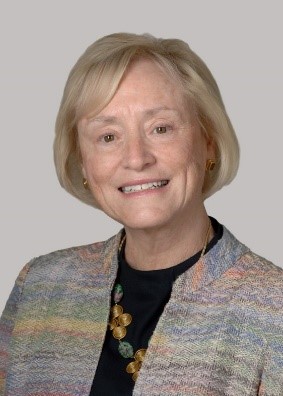
Dr. Goodenow was appointed Associate Director for AIDS Research at the National Institutes of Health (NIH) and Director of the NIH Office of AIDS Research (OAR) in 2016. She leads the OAR in coordinating the NIH HIV/AIDS research agenda to end the HIV pandemic and improve the health of people with HIV. In addition, she is Chief of the Molecular HIV Host Interactions Laboratory at the NIH. Dr. Goodenow previously served as the Acting Director of the Office for Research and Science within the U.S. Department of State, Office of the U.S. Global AIDS Coordinator and Office of Global Health Diplomacy from 2015 to 2016. As a Senior Science Advisor in the Office of Economic Policy’s Bureau of East Asian and Pacific Affairs she received the prestigious Jefferson Science Fellowship in 2012. Dr. Goodenow is also a recipient of the 2019 Esperanza (Hope) award from the Latino Commission on AIDS, for dedication to stemming the tide of HIV and AIDS. Prior to government service, Dr. Goodenow was a Professor of Pathology, Immunology, and Laboratory Medicine at the University of Florida, Gainesville, where she held the Stephany W. Holloway University Endowed Chair for AIDS Research. Furthermore, she was the Director of the Center for Research in Pediatric Immune Deficiency Diseases.
Congresswoman Barbara Lee, Co-Founder & Co-Chair, Congressional HIV/AIDS Caucus
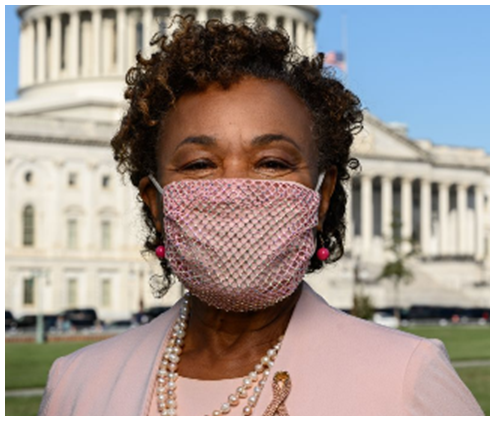
In 1998, Congresswoman Barbara Lee was elected to serve California’s 9th congressional district (now the 13th) in a special election. Since her time in the California legislature, Congresswoman Lee has been a fierce advocate for ending HIV and ensuring an AIDS-free generation. Since entering Congress, she has authored or co-authored every major piece of HIV/AIDS legislation including the legislative frameworks for the President’s Emergency Plan for AIDS Relief (PEPFAR) and the Global Fund to Fight AIDS, Tuberculosis and Malaria. Congresswoman Lee’s legislation establishing a USAID special advisor for orphans and vulnerable children was enacted into law in 2009. In 2011, Congresswoman Lee formed the bipartisan and bicameral Congressional HIV/AIDS Caucus, which she co-chairs.
Harold Phillips, MRP, Director, Office of National AIDS Policy, Domestic Policy Council, Executive Office of the President
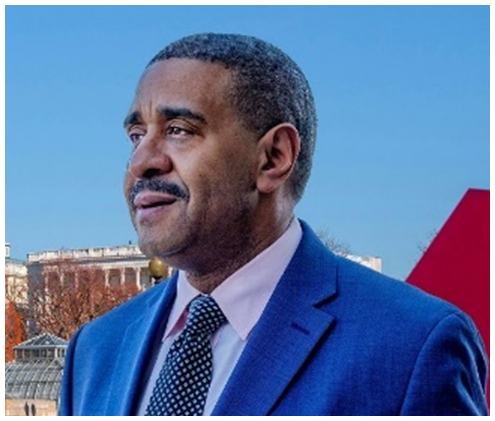
Mr. Harold Phillips serves as the Director of the White House Office of National AIDS Policy. He previously served as the Senior HIV Advisor and Chief Operating Officer of the Ending the HIV Epidemic (EHE) initiative in the Office of Infectious Disease and HIV/AIDS Policy (OIDP) at the U.S. Department of Health and Human Services. His work in the field of HIV/AIDS spans more than 20 years and includes past positions in both the federal government and in the community. Prior to joining OIDP, Mr. Phillips served as the Director of the Office of HIV/AIDS Training and Capacity Development at the Health Resources and Service Administration’s HIV/AIDS Bureau, where he had previously served as Deputy Director of the Ryan White HIV/AIDS Program (RWHAP) Part B and AIDS Drug Assistance Programs (ADAP). In addition to working with RWHAP recipients, planning councils, providers, and patients, he previously worked at NMAC (formerly the National Minority AIDS Council). Mr. Phillips also served on the CDC/HRSA Advisory Committee on HIV, Viral Hepatitis and STD Prevention and Treatment (CHAC) from 2003–2010. He has a Master of Urban and Regional Planning degree from the University of North Carolina at Chapel Hill and an undergraduate degree from Kalamazoo College in Michigan. (Photo by Keith Mumma/Kalamazoo College)
Rachel L. Levine, M.D., Admiral, U.S. Public Health Service, Assistant Secretary for Health, U.S. Department of Health and Human Services
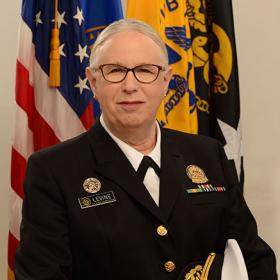
Admiral Rachel L. Levine serves as the 17th Assistant Secretary for Health for the U.S. Department of Health and Human Services (HHS) and the head of the U.S. Public Health Service Commissioned Corps. She fights every day to improve the health and well-being of all Americans. She’s working to help our nation overcome the COVID-19 pandemic and build a stronger foundation for a healthier future - one in which every American can attain their full health potential. ADM Levine’s storied career, first, as a physician in academic medicine focused on the intersection between mental and physical health, treating children, adolescents, and young adults. Then as Pennsylvania’s Physician General and later as Pennsylvania’s Secretary of Health, she addressed COVID-19, the opioid crisis, behavioral health and other public health challenges.
Anthony S. Fauci, M.D., Director, National Institute of Allergy and Infectious Diseases

Anthony S. Fauci, M.D., is director of the National Institute of Allergy and Infectious Diseases (NIAID) at the U.S. National Institutes of Health, where he oversees an extensive research portfolio devoted to preventing, diagnosing, and treating infectious and immune-mediated diseases. Dr. Fauci has been a key advisor to seven Presidents and their administrations on global HIV/AIDS issues, and on initiatives to bolster medical and public health preparedness against emerging infectious disease threats such as pandemic influenza and COVID-19. Currently, he is the Chief Medical Advisor to President Joe Biden. As an HIV/AIDS researcher he has been involved in the scientific effort since AIDS was recognized in 1981, conducting pivotal studies that underpin the current understanding of the disease and efforts to develop therapies and tools of prevention. Dr. Fauci was one of the principal architects of the President’s Emergency Plan for AIDS Relief (PEPFAR), which has helped save millions of lives throughout the developing world.
Panel Discussion and Public Q&A
Moderator: Sally L. Hodder, M.D., Associate Vice President for Clinical & Translational Science/Director, West Virginia Clinical and Translational Science Institute
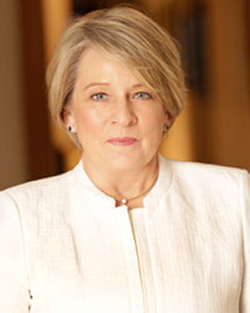
Dr. Sally Hodder is a seasoned infectious diseases physician with extensive experience in the area of clinical trials, serving as Principal Investigator (PI) for several important NIH-funded U awards (2UM1AI069419; U54GM104942-02) and protocol chair for a large (>2000 participant) NIH-supported trial in the area of HIV prevention. From 2003-2005, she served as Vice President of Virology Medical Affairs, Bristol-Myers-Squibb, a position in which she was responsible for 118 Phase IIIb/IV trials worldwide. In 2005, she was recruited to Rutgers University, Newark, New Jersey, to build an HIV program where HIV prevalence was nearly 3% among the African American community, but where (at that time) there was not an active NIH Division of AIDS adult trial site. They successfully competed and were awarded as a site in the AIDS Clinical Trials Group (ACTG) as well as the HIV Prevention Trials Network (both NIH-supported trial networks). As Protocol Chair for the HIV Prevention Trials Network 064 trial (a multi-site study of HIV incidence and risk behaviors among 2,099 US women), she worked effectively with investigator teams to successfully create and execute this study. In 2014, she was recruited to direct the West Virginia Clinical and Translational Science Institute (WVCTSI) and serve as PI for the current NIH funded Institutional Development Award (IDeA), Clinical and Translational Research (CTR), which was successfully renewed in 2017.
Jonathan S. Appelbaum, M.D.; the Laurie L. Dozier Jr., M.D., Education Director and Professor of Internal Medicine, Chair, Department of Clinical Sciences; Florida State University College of Medicine
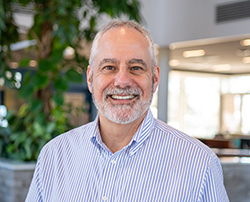
Dr. Appelbaum is an internist, geriatrician, and an HIV specialist. He currently is the Laurie L. Dozier, Jr., MD, Education Director and Professor of Internal Medicine at Florida State University College of Medicine, where he also serves as the Chair of the Department of Clinical Sciences. He recently completed his term as Chair of the Board of Directors of the American Academy of HIV Medicine. He serves on the Board of Directors of HealthHIV, a national organization supporting advocacy, education, capacity building and research for individuals, organizations and communities for persons living with HIV. He served as the co-director for the HIV and Aging Treatment Consensus Project of the American Academy of HIV Medicine and was the founding co-medical editor for www.HIV-Age.org. Dr. Appelbaum is the medical director at Care Point Health and Wellness, serving the diverse and underserved population of south Tallahassee. Dr. Appelbaum earned his MD at the University of Miami School of Medicine and completed his internal medicine residency at the University of Massachusetts Medical Center. Prior to relocating to Florida, he held positions at Fenway Community Health and at Brigham and Women’s Hospital in Boston, MA. He has spoken on or been member of panels on topics such as health issues in the older LGBTQ+ patient, HIV and Aging, and LGBTQ+ curricula in undergraduate medical education. His interests focus on LGBTQ+ health disparities and aging and HIV.
Amanda M. Brown, Ph.D., Associate Professor of Neurology, Johns Hopkins University School of Medicine

Dr. Amanda M. Brown joined the Department of Neurology at Johns Hopkins University School of Medicine in 2004 working her way up the faculty ranks and was promoted to Associate Professor in December 2016 and in 2020 joint appointment in Neuroscience. Her research aims to answer fundamental questions about the inflammatory response and homeostatic signaling after HIV-1 infection/injury to the nervous system and the long-term impacts on neurologic function. Microglial play a central role in healthy neural activity and their dysfunction is tied to neurodegenerative and neuropsychiatric disorders that affect people living with HIV. She completed a bachelor's degree in Biochemistry at the University of California Riverside, a PhD in Microbiology/Immunology at the Albert Einstein College of Medicine and a postdoctoral fellowship at the Aaron Diamond AIDS Research Center. Alongside running her laboratory, Dr. Brown invests significantly in research education, training and mentoring from the high school to early career faculty levels.
Sandra McCoy, Ph.D., M.P.H., Professor, Division of Epidemiology, School of Public Health, University of California, Berkeley
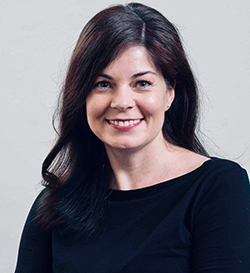
Sandra McCoy is a Professor in the Division of Epidemiology at the University of California, Berkeley School of Public Health and Program Lead of the Epidemiology & Biostatistics concentration in Berkeley's Online MPH Program. Together with collaborators in the U.S. and sub-Saharan Africa, she designs and evaluates implementation strategies to improve access to highly effective HIV prevention and care. Her studies frequently focus on increasing utilization of services and products like HIV self-testing, HIV treatment and care, and pre-exposure prophylaxis (PrEP). To achieve these goals, she uses a variety of methods from behavioral science, implementation science, and impact evaluation to address persistent barriers faced by vulnerable groups such as adolescents, people living with HIV, and people who engage in sex work. In addition, Dr. McCoy co-leads a U.S. NIH D43 training award on the intersection between injury and equity, leveraging data science to decrease the impact of trauma and surgical disparities in sub-Saharan Africa through capacity building and collaborative research.
Carlos E. Rodriguez-Diaz, Ph.D., M.P.H., MCHES, Associate Professor, Vice-Chair, Department of Prevention and Community Health, Milken Institute School of Public Health, George Washington University
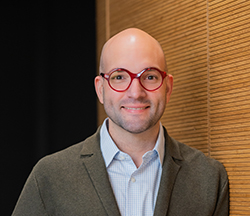
Dr. Carlos Rodriguez-Diaz is an Associate Professor and Vice-Chair of the Department of Prevention and Community Health at the George Washington University-Milken Institute School of Public Health. He is also the Founding Director of the Gill-Lebovic Center for Community Health in the Caribbean and Latin America at GWU-SPH. Dr. Carlos Rodriguez-Diaz is a community health scientist with nearly two decades of experience practicing public health and conducting community-centered HIV research in Puerto Rico, the Americas, and the Caribbean. His work has focused on health equity through actions on the social determinants of health, with special attention to Latino communities, sexual and gender minority populations, and people affected by HIV and other sexually transmitted infections.
His research and scholarship have led to coverage in well-known national and international media sources and major research publications and conferences. Rodriguez-Diaz completed post-doctoral training in HIV and Global Health Research, a Ph.D. in Public Health with a major in Community Health, and an MPH in Health Education. He has also completed post-graduate training in health policy, human rights, and health diplomacy.
Dafina Ward, J.D., Executive Director, Southern AIDS Coalition
Dafina Ward, J.D. serves as Executive Director of the Southern AIDS Coalition (SAC), an organization with a regional focus and national reach, with a mission to end the HIV and STI epidemics in the South. SAC utilizes community-centered policy advocacy, grantmaking, leadership development, and capacity building trainings to support transformation in the region. SAC created Southern HIV/AIDS Awareness Day [SHAAD] in 2019 to amplify the HIV crisis in the region. SHAAD is now a nationally recognized day adopted by hundreds of organizations and reaching thousands annually.
An attorney and strategist, Dafina shares her reflections on the intersections of race, gender, and health through writing, with work appearing in the Washington Post, Role Reboot, and The Body. She was recognized by POZ Magazine twice in 2021—as the July/August POZ Hero and as a member of the 2021 POZ 100 (the magazine’s list of the 100 most influential Black HIV advocates in the nation).
Dafina received her BA in Mass Media Arts from Clark Atlanta University (Atlanta, GA) and her Juris Doctor from Temple University’s Beasley School of Law (Philadelphia, PA). She and her husband reside in Bluffton, South Carolina with their two brilliant daughters.
Closing Remarks
RADM Timothy H. Holtz, MD, MPH, FACP, FACPM, Deputy Director, Office of AIDS Research, NIH
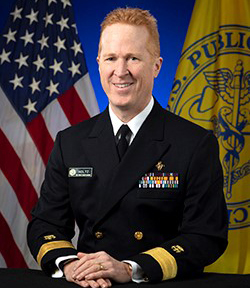
Dr. Holtz was appointed Deputy Director of the Office of AIDS Research (OAR) at the National Institutes of Health (NIH) in June 2019. As Deputy Director, Dr. Holtz provides scientific leadership including policy development and program management for the NIH HIV research program. He works with the OAR Director to coordinate the NIH HIV/AIDS research agenda; directs the development of the scientific components of the NIH Strategic Plan for AIDS and AIDS-Related Research; participates in and convenes expert panels; and coordinates the development of the $3 billion NIH HIV research budget.
Event Emcee
Julio Aliberti, Ph.D., Senior Science Advisor, Office of AIDS Research, National Institutes of Health
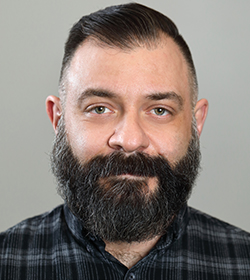
Dr. Aliberti joined the NIH OAR as a senior science advisor in February 2022. Before joining OAR, Julio served as a program officer at the National Institute of Allergy and Infectious Diseases, Division of Microbiology and Infectious Diseases, where he oversaw the vaccine discovery portfolio within the Parasitology and International Program branch, focusing on vaccines against malaria, filariasis and other parasitic diseases.
This page last reviewed on January 14, 2025

